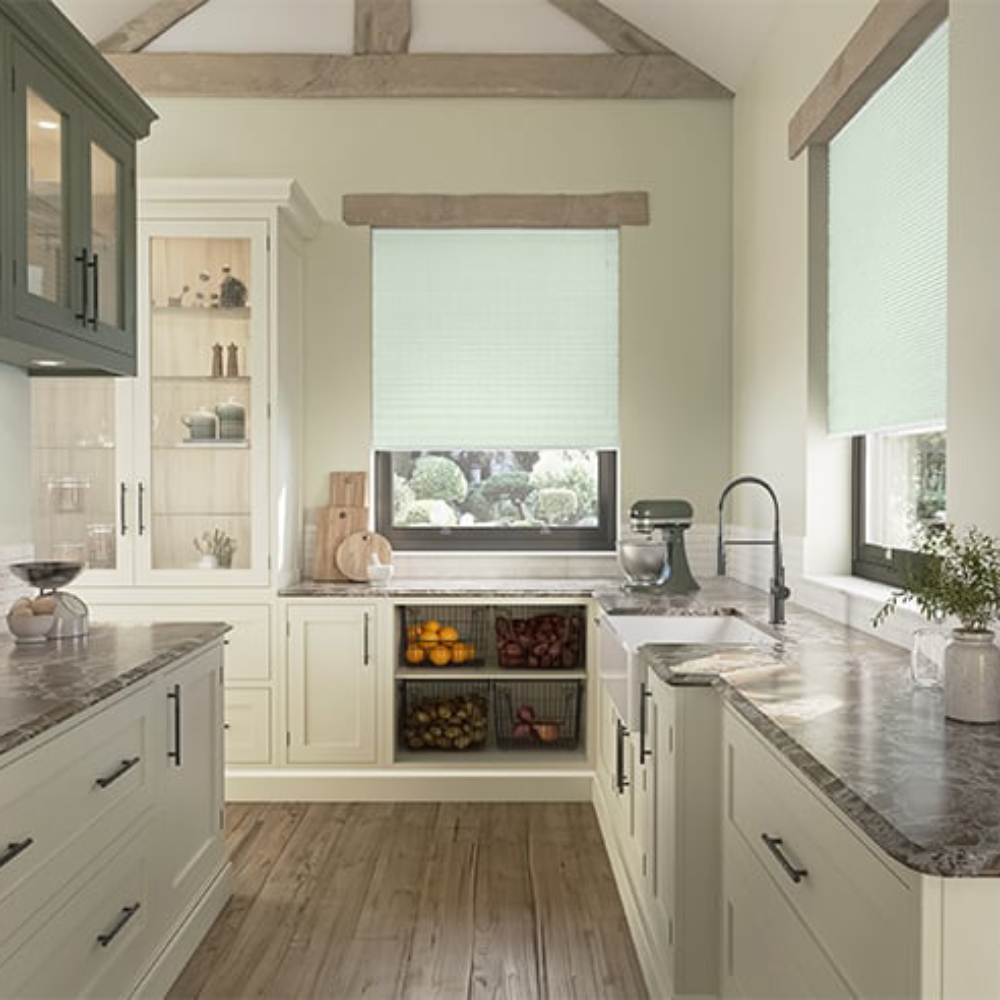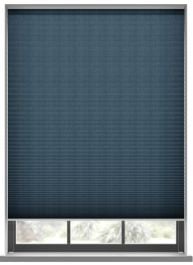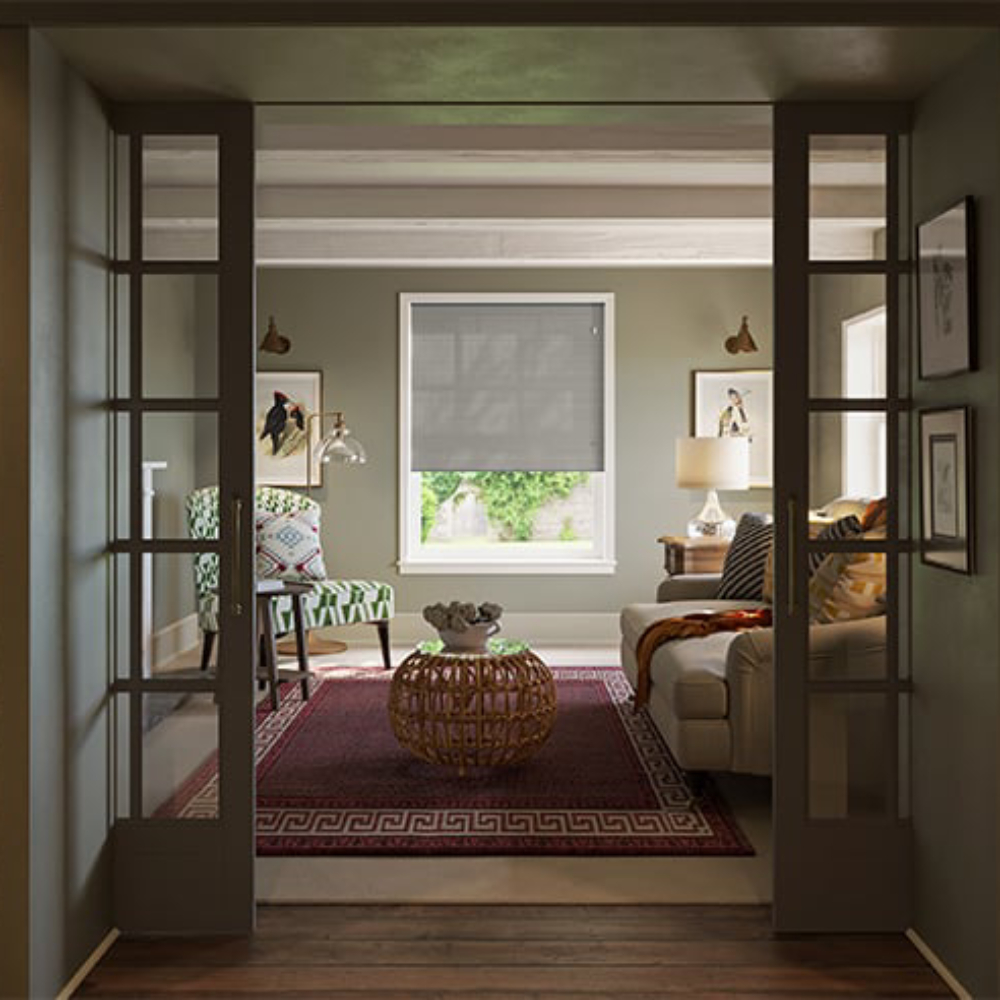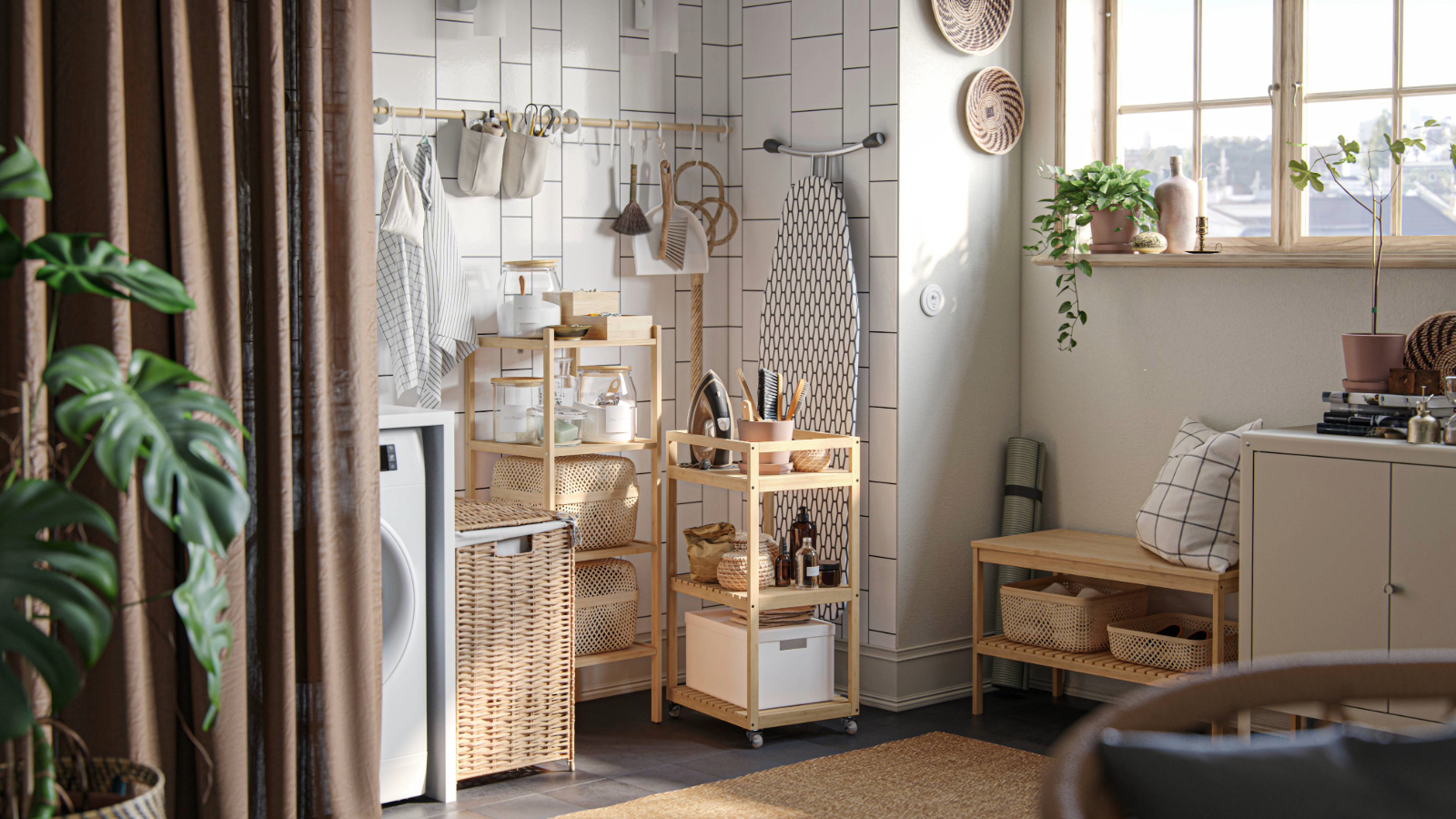If blinds help keep heat in, do they make your room hotter in summer? We explain how to make your windows a weapon in your fight against the heat
Most of us know the answer to 'do blinds keep heat in' is yes. So how does this work in the summer when your room temperature might be higher? Experts unravel how to make blinds your friend and not your enemy
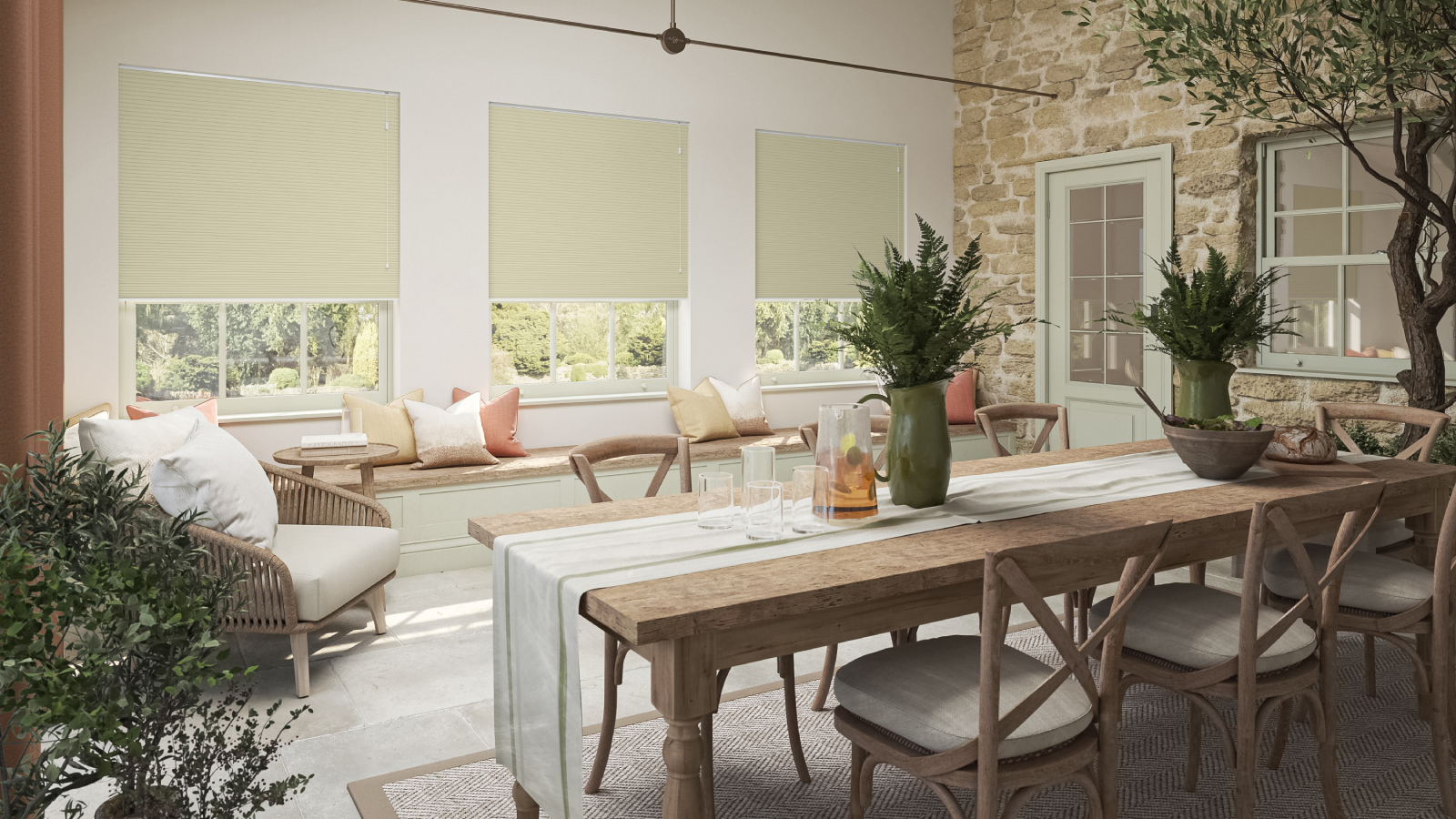
Bring your dream home to life with expert advice, how to guides and design inspiration. Sign up for our newsletter and get two free tickets to a Homebuilding & Renovating Show near you.
You are now subscribed
Your newsletter sign-up was successful
There's no doubt we're all looking for as many ways to keep a room cool as possible in recent weeks and it's not set to change any time soon. But, while we're well versed in keeping windows covered during the winter to help keep the heat in, surely in the summer this doesn't work to our advantage?
If blinds and curtains keep the heat in during the winter, surely that means they'll trap hot air in a room during the summer?
Experts explain why the answer is in principle no, but also warn there are steps you need to take to make sure your blinds do help keep heat out, not just in.
The importance of keeping heat out
For your blinds to work effectively in helping manage temperature in your home, there are a number of things you need to do to make sure they work most effectively.
One of the most important points is to firstly keep the windows and doors closed and make sure you've done this before the temperature outside rises.
“In the short term, keeping doors, windows and blinds closed during the day can make a big difference to the temperature inside your home during a heatwave. Think of it like a cave," says Joseph Holman, CEO of Green Doors
“Caves are a good example of how to manage your home in a heatwave. A cave is cool in heatwaves because it is dark and doesn't have direct sunlight or a direct entrance for the heat. You want to probably mimic that in your home.
Bring your dream home to life with expert advice, how to guides and design inspiration. Sign up for our newsletter and get two free tickets to a Homebuilding & Renovating Show near you.
“Reduce sunlight and stop the movement of the outside air into the home," he says. "Even switching off the lights will help you with that. The recommendation would be to keep the windows and doors closed for the entire time until the temperatures outside drops."
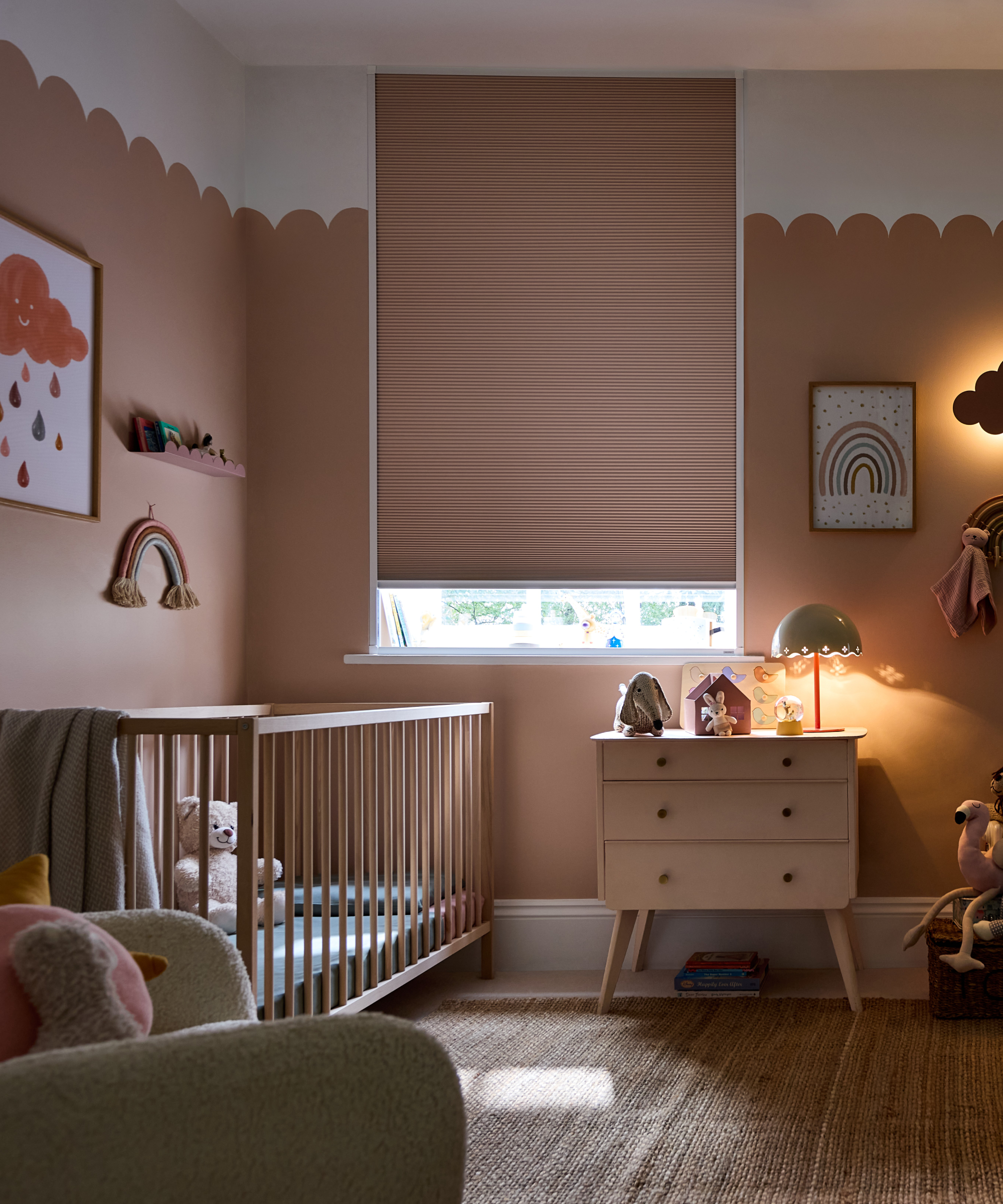
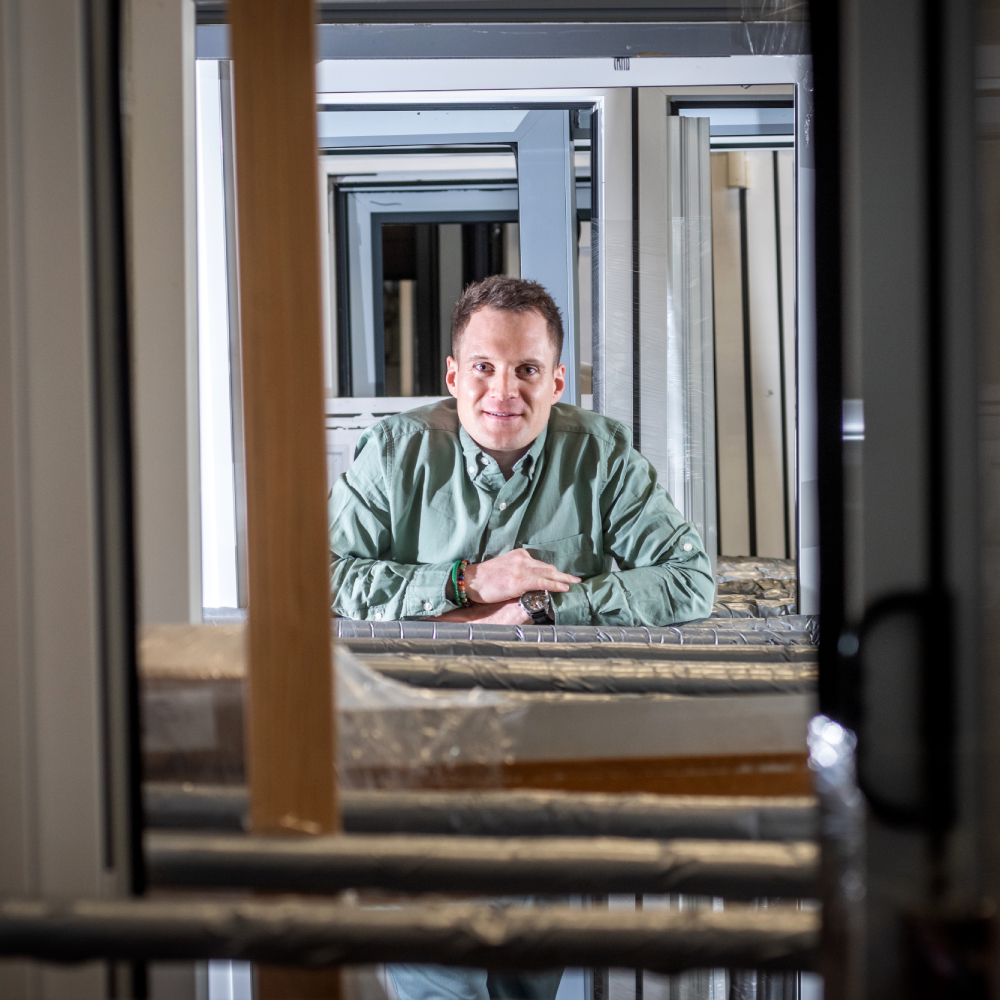
Joseph Holman is the CEO and founder of upcycling company Green Doors, which started with a door he found in a skip. The business now produces revenues of close to £2m and has 12 employees. Last year the business saved over 3000 items destined for landfill, has over 1600 doors for sale and operates two warehouses with a combined size of 25,000 sq ft. Holman is on a mission to provide every door with a second life and to stop UPVC going to landfill.
How do blinds keep hot air in but also stop it from coming in?
So if blinds do keep the heat in, how does it not turn your room into a sauna in the summer?
"While it's true that blinds can keep heat inside during winter, the idea that they might trap heat during summer isn't quite accurate – especially if you choose the right type of blind," says Helen O'Connor, product and trend manager at 247 Blinds.
"Blinds work as thermal regulators all year round. In winter they reduce heat loss by creating an insulating pocket of air between the window and the room. This layer slows the transfer of warm air out of the house – much like double-glazing does," explains Helen.
"In summer, the same principle works in reverse. The pocket of air between the blind and the window helps to block or dissipate the heat before it enters the living space.
"Think of it like a thermos flask," she suggests. "It keeps things hot or cold by using insulation. The structure of some blinds also allows airflow and thermal regulation, which actually helps prevent overheating rather than trap it."
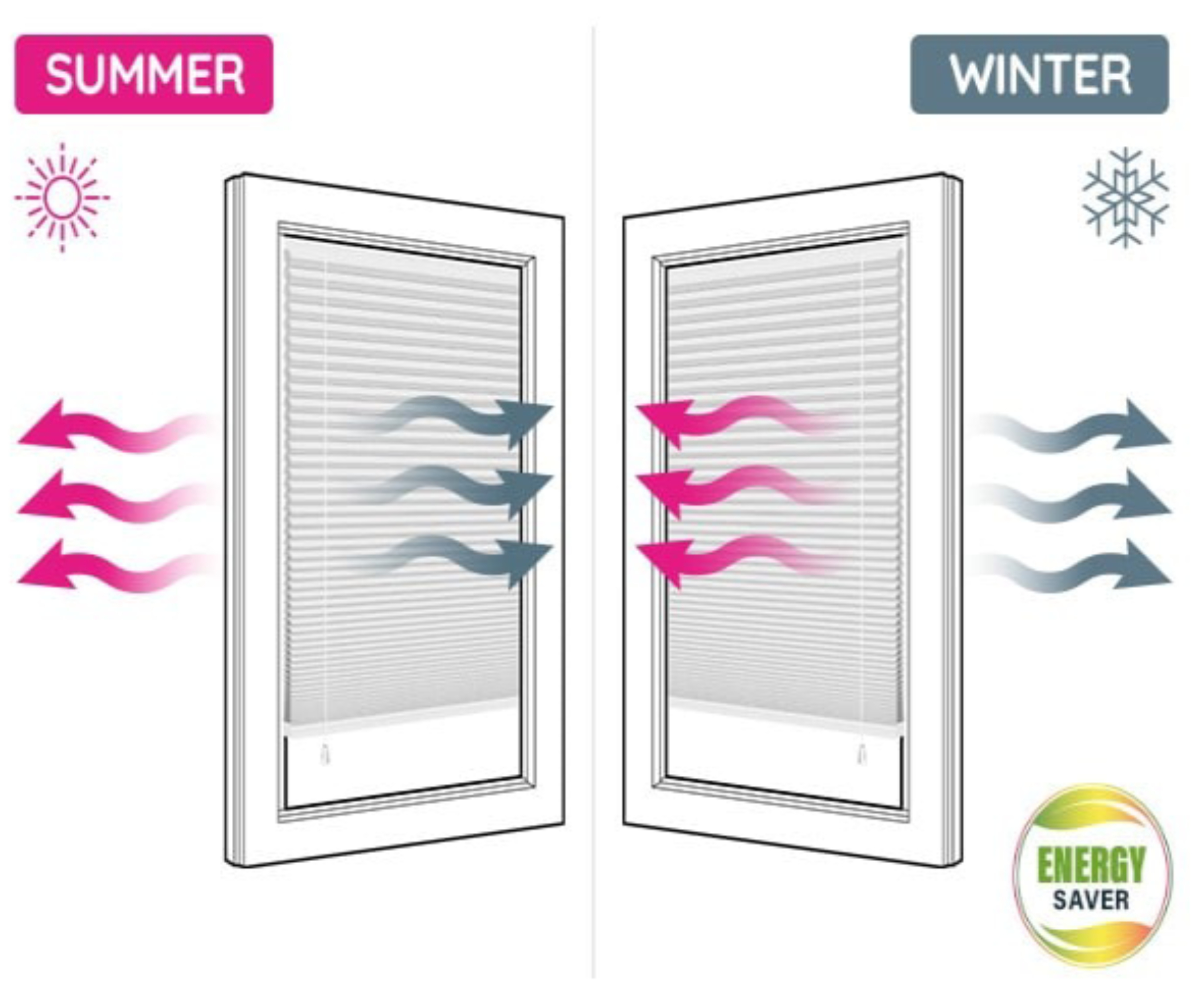
The best blinds for keeping heat out and in
But are all blinds equal? It seems not says Helen, telling us that the material and the design of the blind can make a big difference.
"For optimal summer performance, we'd recommend honeycomb pleated blinds with a blackout fabric and solar-reflective coating on the back and/or in between the honeycomb structure, such as this Celeste Blackout Talc Pleated Blind," suggests Helen.
"The solar-reflective material helps to reflect the incoming solar heat back towards the window and through the glass, preventing it from entering the room. The blackout element prevents light and thermal energy from entering, while the honeycomb structure traps air and limits thermal bridging between the outdoors and the indoors," she explains.
"This means your room stays significantly cooler in a heatwave, reducing the need for air conditioning, and lowering energy bills in the process," adds Helen.
Prefer your window coverings to be more hidden? Another option says Joseph Holman is integral blinds. Worried this means buying completely new windows? Not always he says.
“You can install integral blinds without changing the doors and windows themselves, simply by changing the glazing units."
The added bonus? "Integral blinds can be installed without damaging the door or window, whereas external blinds have to be drilled into something. They are a great space saver and will last longer than external blinds, which can be damaged much more easily," he adds.
Shop blinds that keep the heat in — and out

Helen O’Connor is the product manager at the Yorkshire-based company 247 Blinds and 247 Curtains. Helen is a self-confessed ‘blind nerd’ who has over 10 years experience in the window dressing industry.
FAQs
My windows are in the shade so can I leave blinds closed but open the windows?
Although it can seem counter-intuitive to keep your windows closed, especially if they aren't in direct sunlight, this isn't entirely accurate.
“You don't want to let the warm air inside," warns Joseph Holman. "There is no rule for where doors and windows are located. It is more based on the temperature outside vs temperature inside. One may argue that if the door or window is in the shade, it may be good to open; however, that wouldn't be recommended as it would let the hot air into the house.
“Think of it this way: if you had the air con on to make the air colder, you wouldn't open the doors and windows," says Joseph, "so make sure you don't do that even if you don't have air con installed."
It's the same when using fans such as the MeacoFan Sefte 10" Pedestal Fan or any other type of fan. If you're letting hot air in, that's all the fan is going to be able to push around the room. But, if it's cool inside as you've kept the sunlight and heat out, you will stand a better chance of feeling the benefits of blinds keeping the heat out.
What else can I do to windows to make them heat reflectors?
While modern glass tends to have better reflective qualities than older windows, another option if your windows are particularly exposed to sunlight is solar control glass or tinted film.
“If you want to protect your home from the heat longer term, I would recommend investing in tinted film for windows to reflect the heat," agrees Joseph Holman.
Roller blind canopies are also good at keeping direct sun away from the doors, or anything that can create a shade such as a sun sail or pergola attached to the house.
Understanding how to prevent overheating is also something that needs more consideration if you are looking at a new self build. Natural ventilation is a must in all homes, but with rising temperatures, systems such as MVHR and air to air heat pumps are set to become a must in house design as the mercury continues to climb.

Sarah is Homebuilding & Renovating’s Assistant Editor and joined the team in 2024. An established homes and interiors writer, Sarah has renovated and extended a number of properties, including a listing building and renovation project that featured on Grand Designs. Although she said she would never buy a listed property again, she has recently purchased a Grade II listed apartment. As it had already been professionally renovated, she has instead set her sights on tackling some changes to improve the building’s energy efficiency, as well as adding some personal touches to the interior.
